|
Seeking to counter the Japanese government’s increasing attempts to distort and deny Japanese military “comfort women” history, educators from South Gyeongsang province and California gathered together on June 3–4 at the International Forum for Igniting History Education on Japanese Military “Comfort Women.” Educators and legislators shared a wide spectrum of efforts being made to accurately teach the history of Japanese military sexual slavery alongside fundamental human rights, peace, and countering human trafficking and hyper-sexualization of Asian women in the U.S. This forum was hosted by the Masan, Changwon, and Jinhae Civil Assembly for Japanese Military Sexual Slaves (Machangjin) and sponsored by the South Gyeongsang Province Office of Education.
As representatives from California, four ESJF members were invited to this forum—Faye Kwan, Erin Hanlon-Young, Eric Mar, and Sung Sohn. On June 5, forum participants and two local middle school students toured historical memorials throughout South Gyeongsang province. After spending a day near Jiri Mountain, the ESJF team visited Taebong High School and observed a class teaching “comfort women” history before heading to Seoul. There, the group participated in the Wednesday Demonstration, visited South Korean National Assemblywoman Meehyang Yoon, and toured the vibrant S. Korean capital, where centuries-old palaces and museums dot the mountainous city. Our team also enjoyed South Korea’s most popular summer dessert, bingsu, shaved ice with different sweet toppings! See photos throughout the newsletter. Here’s what the ESJF participants say about our trip to South Korea. Faye Kwan On Friday, June 3, ESJF members Sung Sohn, co-founder and executive director; Bay Area high school teachers Faye Kwan and Erin Hanlon-Young; and Eric Mar, Professor Emeritus at SFSU and former member of the SF Board of Supervisors, landed in South Korea to participate in the two-day International Forum for Igniting History Education on Japanese Military “Comfort Women.” The forum was organized by Yee Kyunghee, president of Machangjin, and held at Gyeongsangnamdo Education Training Institute. Session One of the forum began with an opening ceremony and was proceeded by the following presentations:
Session Three, the final portion of the forum, saw Councilwoman Kyunghoon Kim, of Gyeungsangnam-Do, speak on the importance of passing legislation that promotes an accurate history of Japanese militarized sexual slavery. Eric Mar presented the efforts made to address “comfort women” history through San Francisco’s pan-Asian memorial and the significance of solidarity. The forum ended with final words by Sunho Song, Councilman of Gyeongsangnam-Do Provincial Council. Throughout the sessions, there were opportunities to ask questions of the presenters and additional participants attended via Zoom. As educators, we were able to share our experiences, knowledge, and passion for preserving and validating the history of Japanese military sexual slavery. Educators felt supported and inspired, yet continue to recognize the significance of political influence on education and the need to persist. Eric Mar On Monday, June 6, Machangjin leaders hosted a tour of memorials in South Gyeongsang Province dedicated to “comfort women,” the struggle against Japanese colonization, and the movements for peace today. We joined students, educators, and activists on visits to Masan, Jinju, Sancheong, and Namhae. Local leaders hosted us at the Sancheong memorial, a monument that features a seated Peace Girl statue against the backdrop of beautiful Jiri Mountain. Masan’s 2015 monument Pledge for Justice, Sovereignty, and Peace highlights a defiant-looking young woman in front of a wall of butterflies and flowers. Kyung Hee Yee of Manchanjin told us that the memorial emphasizes the active participation of halmonies in securing peace and human rights. She said the memorial respects the autonomy and sovereignty of all people. The following day we visited students from Taebong High School, where teacher Dohwa Oh demonstrated his skills at engaging the class with a lesson tying the history of WWII Japanese military sexual slavery with war and violence today. After the lesson, we dialogued with teachers and the school administration on strategies to continue our U.S.-Korea educational partnership. Erin Hanlon-Young Circumstances have changed the “Wednesday Demonstration.” When I participated in June 2019, the demonstration took place on the sidewalk adjacent to the Peace Girl statue. Participants filled the sidewalk for the length of two office buildings, and the atmosphere was one of hope and optimism. Schoolchildren took turns with adults, sharing their messages of solidarity with the halomoni sitting just off stage. Yet today, political circumstances in South Korea have led to the rise of sentiments that see the demonstrations as Japan-bashing, which ignores the fact that the halmonies have repeatedly stated that they do not hate Japan or the Japanese people. What they want is simply for the Japanese government to officially apologize for what it did and to pay reparations to the survivors. These opposing groups have turned the formerly righteous noise of the Wednesday Demonstration into a cacophony. When I walked past the weekly demonstration site on this visit, I found it surrounded by three different anti-“comfort women” movement groups. Even though the content of the Wednesday Demonstration has stayed the same—messages of thanks and solidarity for the halmonies with interludes of singing or dancing—the atmosphere has changed. The opposition groups attempted to drown out the speakers, even using disturbing recordings of machine gun fire. However, for all their efforts, they did not succeed. The ESJF members, Sung Sohn, Eric Mar, Faye Kwan, and Erin Hanlon-Young, shared their messages using loud voices, microphones, and their own conviction. When Eric Mar spoke, he used his “politician voice” and even quieted the din for a moment. Sung addressed the racism being leveled at the Peace Girl statue, dismantling the baseless claims that because she is dressed in a hanbok she cannot represent all the victims of wartime rape and sex trafficking. Faye shared messages from her students and that these demonstrations continue to provide inspiration to her students. Erin also shared messages from her students and pointed out that, because of the example set by the halmonies, the victims of Russian military rape in Ukraine are able to speak out immediately and be believed. Eric shared messages of solidarity from Bay Area youth who are inspired by the demonstrations and drew attention to the fact that college students in South Korea have taken it upon themselves to keep constant vigil around the Peace Girl statue to prevent vandalism. The circumstances surrounding the Wednesday Demonstrations may have changed, but the message of peace, hope, and the desire for righteous restitution have all stayed the same.
0 Comments
https://mailchi.mp/8d0a6f84c431/esjf-june-2022-newsletter?e=9909c84291
|
CategoriesCategories |
Proudly powered by Weebly

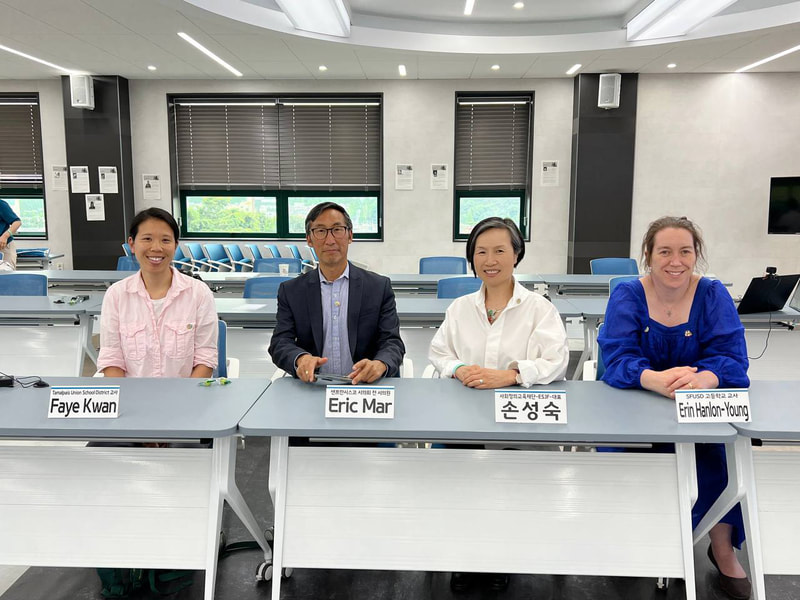
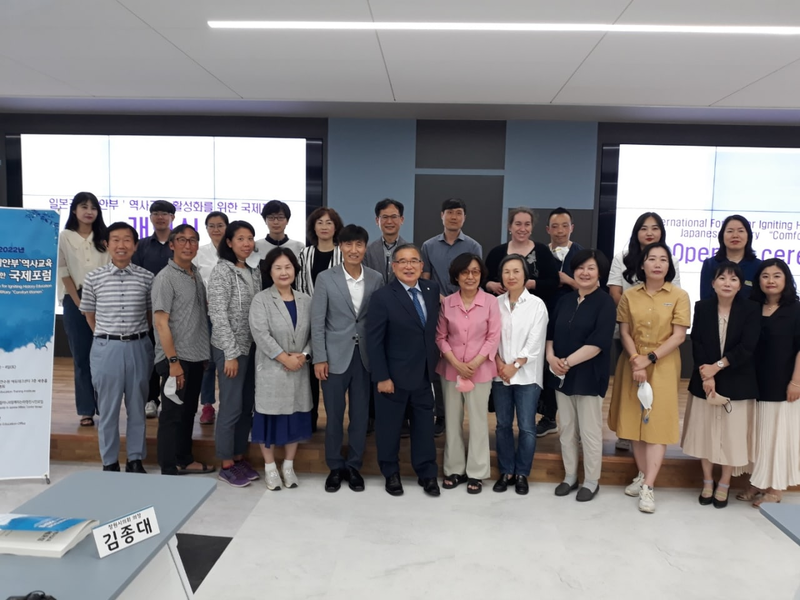
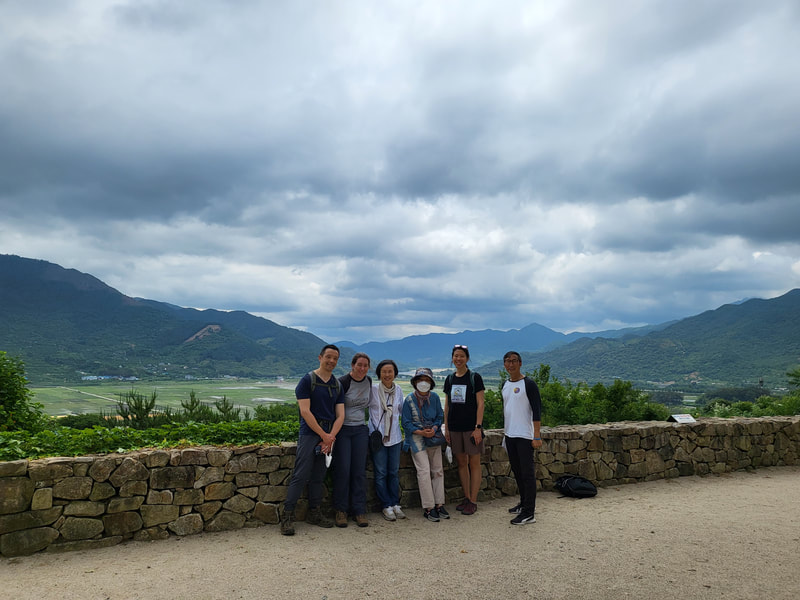
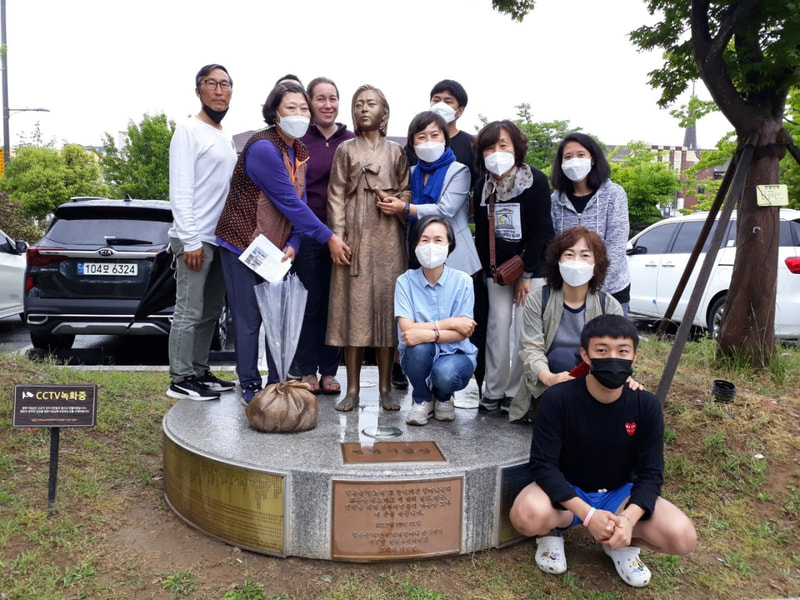
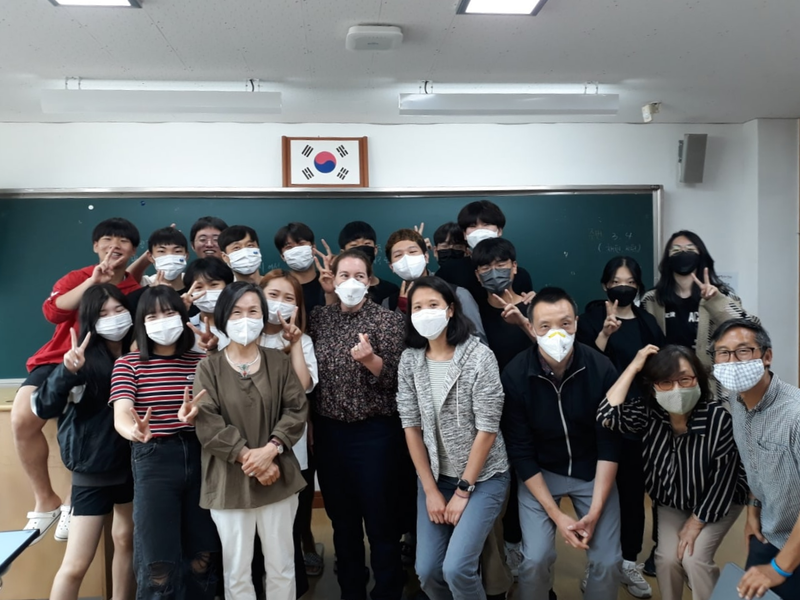



 RSS Feed
RSS Feed